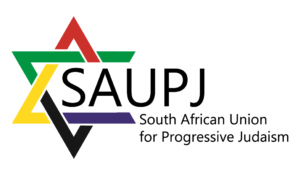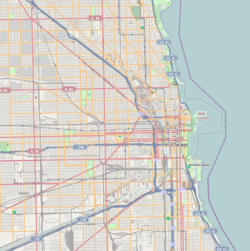
Reform Judaism, also known as Liberal Judaism or Progressive Judaism, is a major Jewish denomination that emphasizes the evolving nature of Judaism, the superiority of its ethical aspects to its ceremonial ones, and belief in a continuous revelation which is closely intertwined with human reason and not limited to the Theophany at Mount Sinai. A highly liberal strand of Judaism, it is characterized by little stress on ritual and personal observance, regarding Jewish law as non-binding and the individual Jew as autonomous, and by a great openness to external influences and progressive values.

A siddur is a Jewish prayer book containing a set order of daily prayers. The word siddur comes from the Hebrew root ס־ד־ר, meaning 'order.'

The machzor is the prayer book which is used by Jews on the High Holy Days of Rosh Hashanah and Yom Kippur. Many Jews also make use of specialized machzorim on the three pilgrimage festivals of Passover, Shavuot, and Sukkot. The machzor is a specialized form of the siddur, which is generally intended for use in weekday and Shabbat services.

Reform Judaism, formally the Movement for Reform Judaism (MRJ) and known as Reform Synagogues of Great Britain until 2005, is one of the two World Union for Progressive Judaism–affiliated denominations in the United Kingdom. Reform is relatively traditional in comparison with its smaller counterpart, Liberal Judaism, though it does not regard Jewish law as binding. As of 2010, it was the second-largest Jewish religious group in the United Kingdom, with 19.4% of synagogue-member households. On 17 April 2023, Reform Judaism and Liberal Judaism announced their intention to merge as one single unified progressive Jewish movement. The new movement, which may be called Progressive Judaism, will represent about 30% of British Jewry who are affiliated to synagogues.

The Israel Movement for Reform and Progressive Judaism is the organizational branch of Progressive Judaism in Israel, and a member organization of the World Union for Progressive Judaism. It currently has 40 communities and congregations around the state of Israel, 13 of which are new congregations – referred to as U'faratztah communities – and two kibbutzim, Yahel and Lotan.

The Liberal Jewish Synagogue, abbreviated as LJS, is a Liberal Jewish congregation and synagogue, located in St John's Wood, in the City of Westminster, London, England, in the United Kingdom.
Capers C. Funnye Jr. is an African-American Conservative rabbi, who leads the 200-member Beth Shalom B'nai Zaken Ethiopian Hebrew Congregation of Chicago, Illinois, assisted by rabbis Avraham Ben Israel and Joshua V. Salter.

Congregation Beth Israel is an independent, traditional egalitarian Jewish congregation and synagogue, located at 229 Murdock Avenue in Asheville, North Carolina, in the United States. Founded in 1899 as Bikur Cholim, it was an Orthodox breakaway from Asheville's existing synagogue. It hired its first full-time rabbi in 1909, opened a religious school in 1911, and acquired its first building, which burnt down in 1916, in 1913.

Congregation Mishkan Israel is a Reform Jewish congregation and synagogue, located at 785 Ridge Road, in Hamden, Connecticut, in the United States. Founded in 1840, it is the oldest Jewish congregation in both Connecticut and New England, and the 14th oldest continuous operating synagogue in the United States.
The Union Prayer Book was a Siddur published by the Central Conference of American Rabbis to serve the needs of the Reform Judaism movement in the United States.

Mishkan T'filah—A Reform Siddur is a prayer book prepared for Reform Jewish congregations around the world by the Central Conference of American Rabbis (CCAR). Mishkan T'filah is Hebrew for "Dwelling Place for Prayer" and the book serves as a successor to Gates of Prayer, the New Union Prayer Book (GOP), which was released in 1975. In 2015, CCAR released the complementary Mishkan HaNefesh machzor for the High Holy Days. CCAR also produces a host of print and electronic materials to supplement the Mishkan T'filah book.
Same-sex marriage in Judaism has been a subject of debate within Jewish denominations. The traditional view among Jews is to regard same-sex relationships as categorically forbidden by the Torah. This remains the current view of Orthodox Judaism.
Or Emet, officially the Minnesota Congregation for Humanistic Judaism, is a Humanistic Jewish synagogue and congregation in Minneapolis – Saint Paul, Minnesota, in the United States. The congregation is a member of the Society for Humanistic Judaism. It is a community of cultural Jews, secular Jews, Jewish humanists, and other humanists, united by a commitment to humanism and by respect and support for Jewish culture, traditions, and Jewish identity, and by those traditional Jewish values most consonant with humanism — tikkun olam, social justice. Or Emet embraces a human-centered philosophy that combines rational thinking and scientific inquiry with the celebration of Jewish culture and traditions.
Steven Blane is an American rabbi, cantor and recording singer-songwriter.
Or Haneshamah, officially, Or Haneshamah – Ottawa's Reconstructionist Community, is a Jewish Reconstructionist synagogue located in Ottawa, Ontario, Canada. The congregation is one of only three affiliated Reconstructionist congregations in Canada, and the only Reconstructionist congregation in Ottawa. Founded in 1987, Or Haneshamah describes itself as a progressive, liberal, egalitarian, inclusive, multi-generational congregation notable for welcoming all Jews, including unaffiliated, intermarried, and LGBTQ individuals and families. As of 2016, the congregation's membership constituted approximately 90–100 households.
Temple Israel is the oldest of eleven Progressive synagogues in South Africa. It is a provincial heritage site, built in the Art Deco style by architect Hermann Kallenbach. It is located in the Johannesburg suburb of Hillbrow. It is an affiliate of the South African Union for Progressive Judaism (SAUPJ), which is part of the World Union for Progressive Judaism (WUPJ).

The South African Union for Progressive Judaism (SAUPJ) is an affiliate of the World Union for Progressive Judaism and supports 11 progressive congregations. Rabbi Moses Cyrus Weiler, a founder of Reform Judaism in the country, led the country's first Reform synagogue, Temple Israel in Hillbrow, Johannesburg. Weiler is credited with growing the movement, to represent 15-17% of South African Jewry and establishing 25 congregations in the country. A 2020 joint study by the Institute for Jewish Policy Research and the University of Cape Town showed that 12% of Jews identified as Progressive and that in relative terms the progressive strands are increasing after falling to 7% in 1998 and 2005 studies. In Johannesburg, the community accounts for 7% of the city's Jewry, rising to 18% in Cape Town and 25% in Durban.

The Union for Progressive Judaism is an affiliate of the World Union for Progressive Judaism and supports 27 progressive congregations in Australia, New Zealand and Asia. The movement serves about a fifth of the region's affiliated community. The UPJ is represented on the major communal bodies in Australia, such as the Executive Council of Australian Jewry, the Zionist Federation of Australia (ZFA) and Zionism Victoria.

Rabbi Harry Martin Jacobi was a rabbi in the United Kingdom, where he came in 1939, via The Netherlands, as a refugee from Nazi Germany. He has been described as "a formative figure in the founding and growth of Liberal Judaism in the UK and Europe".
Temple Beth Israel (TBI) is a synagogue affiliated with Progressive Judaism in St Kilda, an inner seaside suburb of Melbourne, Australia. The organisation is a member of the Union for Progressive Judaism, an umbrella organisation for Progressive Judaism in Asia and the Pacific.












